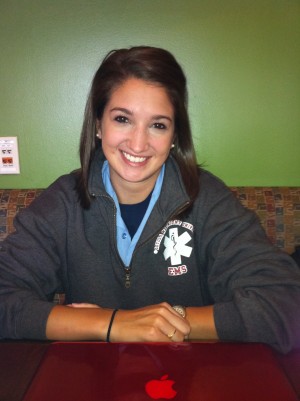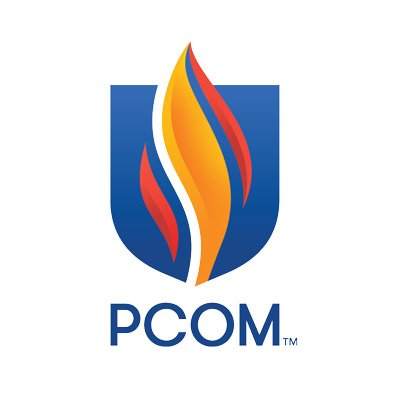11 Burning Questions with the president of Emergency Medical Services
By Tierney Finster
The Los Angeles Loyolan
This issue, News Editor Tierney Finster talks with Heather Lougee, a senior natural science major, about her experience as an Emergency Medical Technician.
 1. What motivated you to become an Emergency Medical Technician (EMT)?
1. What motivated you to become an Emergency Medical Technician (EMT)?
I actually heard about the program during Preview Day before freshman year. I had heard nothing but good things about the program before I started. I want to go into medicine, so this is a great way to get medical experience.
2.What are your responsibilities as an EMT and as president of Emergency Medical Services (EMS)?
As EMTs we are responsible for responding to all emergency medical situations on the LMU campus when the Health Center is closed. Public Safety pages us, and we respond. We never really know what we're going to get, it can be anything from people who have had too much to drink to people who have sprained their ankles. ... EMS is here to help. People should never be afraid to call us. We're not here to judge, we've seen it all. As president, I handle communication between the EMTs and the University.
3. Describe EMT training.
To be an EMT, you have to take a 120-hour class. Mine was seven weeks over the summer before sophomore year. You also have to take a National Registry exam to get registered. You also have to get L.A. certified and then apply to be part of the LMU EMS program. We take applications in the spring and in the fall.
4. What is the most rewarding part of the work you do?
I guess just knowing that even when it's not as obvious, we are helping people. It really is rewarding because we help the community that we live in, giving us a direct relationship with LMU.
5. National Collegiate EMS Week is this week. What is its purpose?
National Collegiate EMS Week is basically a week to appreciate the different EMS programs at colleges throughout the country. Most of the EMS programs are on the East Coast. We are one of four on the West Coast. It's basically just a week to recognize the work of all the different programs.
6. How is LMU's EMS program the same or different than emergency service programs at other universities?
I think our program is extremely lucky. We get to go to a conference every February on the East Coast where we meet students from other EMS programs. When we listen to them we really realize how lucky we are to have such a great amount of support from departments like Public Safety and the Health Center. Our size also differs from most programs. We have 20 EMTs, whereas I think Santa Clara [University] has 40. We try to keep it a low number to ensure that people are in [it] for the right reasons.
7. What is one health or safety lesson that you wish students would just learn already?
Eating and drinking water if you're going to go drink. We ask so many people, "What's the last thing you ate?" and it was a banana 12 hours ago. Even people who aren't drinking often feel sick because they're dehydrated.
8. Do you generally feel appreciated by the people you help? Is there every any misplaced anger towards EMTs?
For the most part I think people do appreciate us. However, there are people who think we're there to get them in trouble. ... When people aren't appreciative, that's really [when] we look to faculty for support.
9. What are your plans for after graduation, and how do you think your EMS experience will help facilitate them?
After college, I plan on going to medical school. ... Being a part of EMS and working directly with patients has caused an exponential increase in me wanting to be a doctor. It's just such a rewarding feeling knowing that you're helping other people.
10. What songs are you most embarrassed of in your iTunes?
Oh my God, I'm a Justin Bieber fan. I love Justin Bieber and am not afraid of it. His "Mistletoe" song right now is an instant classic.
11. Are you going to the 1911 Centennial Ball? If so, tell us about your dress.
I'm going. I'm wearing a white, kind of Marilyn Monroe looking dress.

